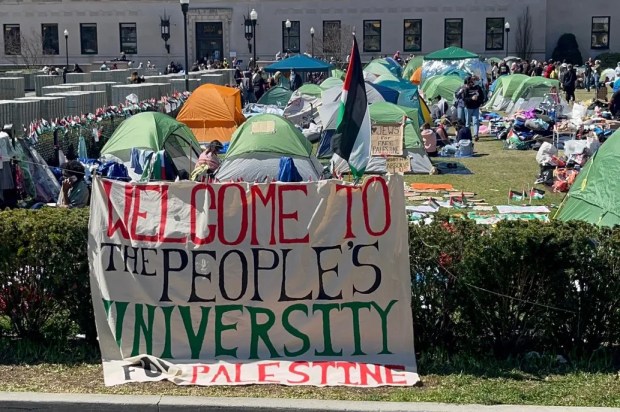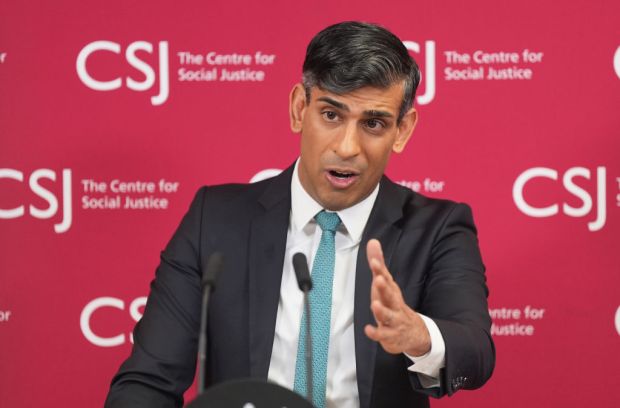It is undeniable that the University of Edinburgh is the jewel in the crown of Scotland’s higher education system. Among its alumni are some of the most resounding names in world history. It remains today a galvanic intellectual force. In the QS World University Rankings 2022, Edinburgh was sixteenth; a single point behind Yale and ahead of Columbia, Princeton and Johns Hopkins. Edinburgh’s closest Scottish rival, Glasgow, lies 57 places behind it. These are truly magnificent achievements for a public university based in a country of just over five million people.
Yet all is not well at Edinburgh. For a year it has attracted bad headlines both in the UK and overseas. The problems began with its decision to rename the David Hume Tower last summer, at the behest of student protestors during the Black Lives Matter campaigns. The university had suggested that Hume’s comments on race would ‘rightly cause distress today.’
Then came the news that Ann Henderson, the former Rector and President of the University Court, had attracted visceral hostility from some students and staff during her time in office after being accused of transphobia.
Reflecting on her tenure this month, Ms Henderson said that she was ‘repeatedly subjected to unfounded allegations by staff, students, student newspapers and student societies’ and claimed that ‘the university failed to take appropriate action in response.’ As a result, she has now published what has been described as ‘a damning indictment of the pernicious culture which is flourishing on some university campuses.’
Henderson’s ordeal was then followed by the case of Dr Neil Thin, senior lecturer in anthropology. Thin was suspended after 34 years of unblemished service because of student allegations about his teaching on issues of race. He has now been exonerated after a month’s investigation, though his student tormentors will remain anonymous. No action will apparently be taken by the university against those who made the original false allegations. Thin, however, fights on. He has now courageously and publicly vowed that he will not resume his duties until his accusers face the consequences of their actions.
Given what Ms Henderson and Dr Thin have suffered it is hardly surprising that their academic colleagues no longer dare to raise their head above the parapet on these matters. It is crucial, however, that their voices should be heard at this time. By tradition a university is a place of free, tolerant, collegial and civilised debate, not least on controversial and divisive issues.
This week, I contacted several members of staff about these developments at Edinburgh. Sadly, not one was willing to risk being named for fear of a backlash from students. Therefore I accepted that they could speak with me under conditions of confidentiality and anonymity. Here in summary are some of their comments:
‘Nine weeks after the attacks on Dr Thin, the university has still not challenged the students responsible for abusive online behaviour which flagrantly flouted both Edinburgh’s Social Media and Dignity and Respect Policies and in some cases arguably broke the law by being defamatory. This failure to hold them to account can mean only that the university authorities are too fearful of challenging some student activists who now seem beyond control.’
‘Most colleagues tackle controversial topics in their teaching and research. Many now feel constrained what they can say for fear of “offending” with their views and so triggering online abuse. Many will look at the former Rector Ann Henderson – a highly respected trade unionist and feminist who called for reasoned debate on controversial topics – and the abject failure of the university to support or protect her. If this can happen to a President of the University Court, people are asking, then what confidence can an employee or a student have in the University protecting them?’
‘It should be noted that “Black Ed” (the student group which secured the renaming of the David Hume Tower and has also been active in the Thin affair) is no peripheral faction. Formed during the Black Lives Matter protests last summer, “Black Ed” was formally coopted to the University’s new Race, Equality and Anti-Racist Sub-Committee (REAR) which oversees Edinburgh’s Race Equality and Anti-Racist Plan. In other words they have been given a seat at the decision-making table on these matters. Now they have organised a deliberate and targeted assassination (of Dr Thin) which quite clearly breaches the University’s Code of Students and our much vaunted “Dignity and Respect” Policy. Rather than take action against them through formal procedures, the institution instead brazenly suspended the victim of the bullying and harassment. Is it any wonder that I wish to remain anonymous and that colleagues angered at these injustices wish to keep their heads down?’
‘Edinburgh’s top-down, authoritarian structures have already led to feelings of alienation and exclusion among both staff and students. Staff surveys confirm that confidence in management is not much above zero and the National Student Survey results have long been woeful. Recently, however, things have taken a sinister turn. Academic colleagues no longer feel merely oppressed and demoralised but now also threatened and intimidated’.
The tenor of these comments suggest deep concern from respondents about the direction in which their university is heading. It would, however, be naive to assume that these problems are unique to Edinburgh or merely caused by mediocre managements. It is an enormous tribute to the gifted staff at Edinburgh that despite the malaise the institution still manages to maintain its academic standards of world class excellence. But for how much longer will that level of performance endure?
There are more profound forces at work in British universities which are much more insidious and much more difficult to fix than changing their leaderships.
These include years of increasing managerialism, exhausting labour disputes over conditions and pensions, ever-rising levels of bureaucracy, coupled with the persistent extension of the powers of bureaucrats, and the emasculation of academic bodies such as Senates and Councils.
Added to this mix, crucially, has been the marketisation of higher education. Undergraduate students have been encouraged to see themselves as consumers, paying substantial fees, and so demanding and deserving a particular kind of educational product. This process has also been encouraged at managerial level by the fetishisation of the ‘student experience’ and impact of the destructive and counter-productive National Student Survey.
Edinburgh’s current difficulties, like those of other universities, are in large part rooted in these factors. It may be Edinburgh now, but what will be the next institution in the line of student fire?
<//>
Got something to add? Join the discussion and comment below.
Get 10 issues for just $10
Subscribe to The Spectator Australia today for the next 10 magazine issues, plus full online access, for just $10.




















Comments
Don't miss out
Join the conversation with other Spectator Australia readers. Subscribe to leave a comment.
SUBSCRIBEAlready a subscriber? Log in